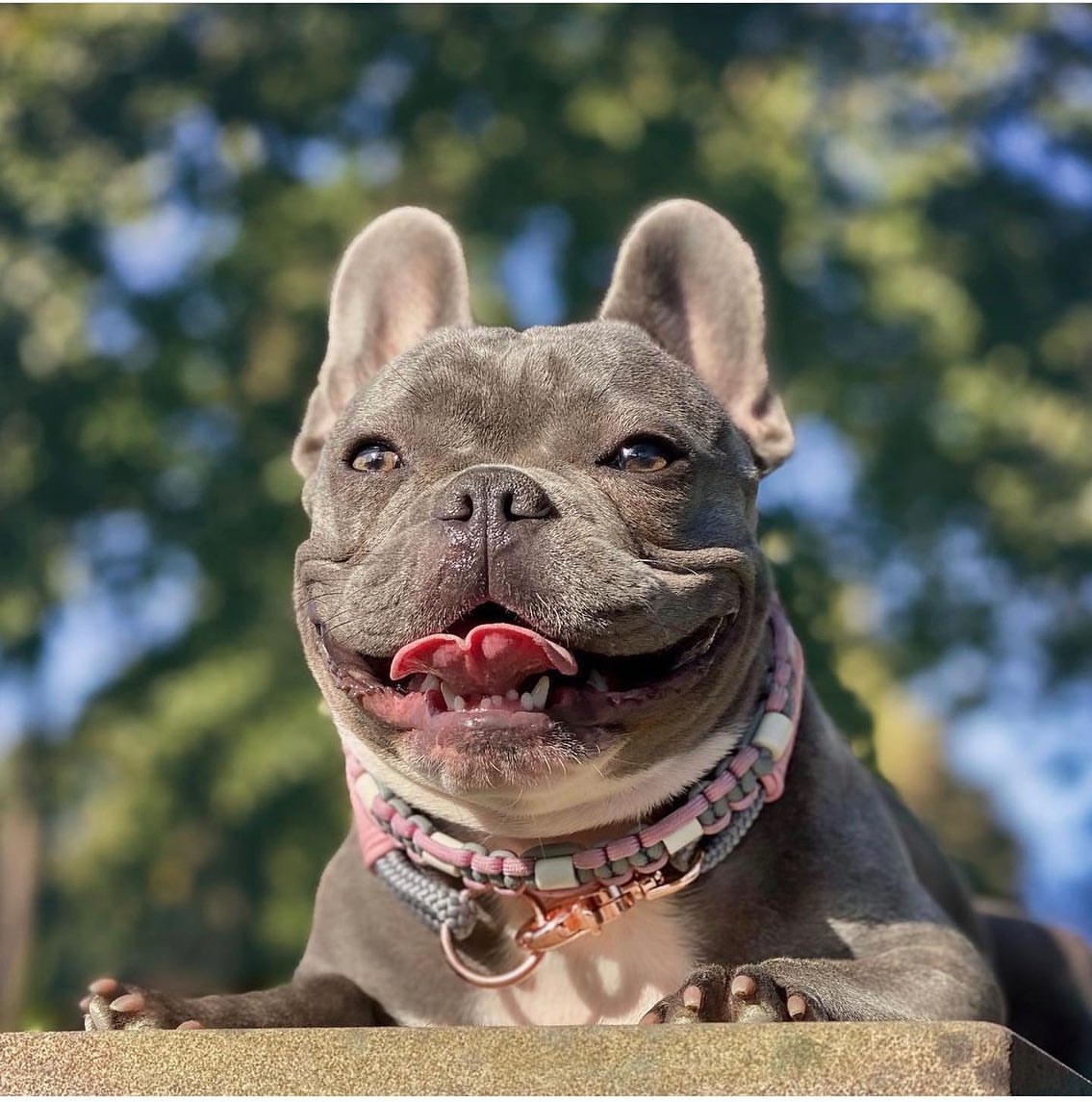Based on the American College of Allergy, Asthma and Immunology, As high as 10 percent of the population in the United States are allergic to dogs. It is therefore fair to inquire whether any breed of dog is hypoallergenic. Many people aren’t interested in having the French Bulldog for one reason they fear they’ll suffer from an allergic reaction if they do get one.
If you are a fan of Frenchies but are in this category, this blog is perfect for you. This blog will provide specific answers as to whether you can still have the Frenchie breed or not. Although, if you are a bulldog lover, you can look for other bulldog mix breed’s such as English bulldogs or different breed’s that have mixed with Bulldog; Boston terrier, Shih Tzu, french boodle etc.

What does a hypoallergenic dog mean?
Many products on the market claim to be hypoallergenic, but what does that mean? Simply put, hypoallergenic means that a product is less likely to cause an allergic reaction. This could be because the product is made with fewer or no ingredients known to cause allergies or because it has been specifically designed to reduce the risk of an allergic reaction.
When it comes to dogs, there is no such thing as a completely hypoallergenic breed. However, some breeds are more likely to cause an allergic reaction than others. For example, dogs with shorter coats tend to shed less and produce less dander, which is one of the main triggers of pet allergies. Breeds considered hypoallergenic include the Bichon Frise, Maltese, Poodle, and Yorkshire Terrier.
You may like: why are grapes bad for dogs?
Is there any absolute hypoallergenic dog breed?
No, but some breeds are better for people with allergies than others. Breeds considered hypoallergenic include the Bichon Frise, Maltese, Poodle, and Yorkshire Terrier. These breeds typically shed less and produce less dander, one of the main triggers of pet allergies. However, it’s important to remember that all dogs can trigger an allergic reaction in some people, so it’s always best to consult with a doctor before getting a dog if you have any concerns about allergy risks.

Are french bulldogs hypoallergenic?
No, french bulldogs are not considered to be a hypoallergenic breed. French bulldogs shed and produce dander, which can trigger allergies in some people. However, they may be a good choice for people with allergies looking for a low-shedding breed.
What is Dander?
Thanks for asking. Dander is a small amount of skin that is separated from the dog. If you’re interested, any animal with feathers or fur produces the odor of dander. Therefore, the cats and dogs produce dander, as will parrots and foxes! Most likely, you won’t even be able to see the small pieces of skin (occasionally, you may see larger pieces); however, most of it is so tiny that you won’t even be able to see it through a microscope!
It’s not the dander itself as it is that triggers the reactions; however, as I’ve mentioned previously, the dander has proteins, which causes the problem. This protein can also be present in the urine and saliva of these animals. So it’s not just the sensitive skin that’s giving problems.
How bad are they for humans allergies?
We know this that we have discovered so far: Frenchies are not hypoallergenic and shed a tiny amount of fur, which is most hefty twice a year. They also are susceptible to skin conditions and can cause allergic reactions. What about those who have sensitive sinuses?
They’re pretty. However, they can be deadly. So, the Frenchie will not hurt you, but they can cause some damage to your allergies. They shed not only an impressive amount of their distinctive fur. However, they also shed their skin as it can be dry and fragile. They’re also not afraid of their slobbering behaviors.
Specific proteins present in saliva, fur, urine, and dander can trigger a body’s immune system to react or overreact. Different breeds produce different amounts of dander. However, the slobber stays fairly constant. Most of the time, the Frenchie’s slobber will trigger your symptoms before their hair growing.

Why You Need a Hypoallergenic Dog Breed?
Allergic to dogs? It’s a problem many people face. And it can be difficult to have a dog if you have serious allergies – at least, without doing some research into what dog breeds might work best for you. There has been a shift in demand from people needing hypoallergenic dogs in the past several years because of the allergy and sensitivities. Many dog parents who suffer from allergies want something to help them relax and avoid worry when they’re with their dog companion. Others need a break from constant sneezing and other allergy symptoms, and having an allergy-free zone is essential.
You may like: everything about jack Russell rat terriers
How Hypoallergenic are French Bulldogs?
Frenchies shed a fair volume of fur, despite the fact that they’re hairless or short hair. At least once a year, they shed a lot of furs. It’s usually in late Spring and late Fall when they shed their undercoat. Also, they shed more hair due to unhealthy living and hygiene conditions or have deficiencies in vitamin D in their diet.
Skin allergy is a common skin issue that is common in French Bulldogs. The skin allergy of French Bulldogs is sensitive and susceptible to inflammation, particularly due to the folds in their skin. Here are some reasons you should be cautious in case you’re extremely allergic and would like to purchase adorable Frenchie:
- Frenchies, as well as other breeds of dogs shed a little hair. But there are times when they shed a significant amount that can aggravate allergies.
- French Bulldogs’ hair is short and hard, making it more likely for dander to become stuck inside their hair. Because they are awestruck and are known to steal attention whenever they can, they could easily spread hair with allergens that can trigger allergic reactions among people.
- French Bulldogs don’t hesitate when it comes to Slobbering. The fur, dog saliva, and urine contain certain proteins. Contact with these proteins can cause allergic reactions. Frenchies might produce different amounts of pet dander at various year periods. However, their drooling could be fairly constant. The drool they produce can trigger allergic reactions much quicker than hair.

Conclusion
Finally, make sure you visit French Bulldogs before taking him home to test any possible allergy you might experience. You don’t want to waste your entire money and time adopting a French bulldog to take the dog home only and discover that you can’t live with them because of allergy symptoms. French Bulldog is a wonderful puppy to add to your home. They require little effort to groom and exercise. Also, French Bulldog’s are a great fit in a small space since they don’t require lots of space.
Additionally, these dog is excellent pet for families because they’re small and comfortable. The French Bulldogs are not hypoallergenic the ideal choice if you have allergies. There are other breeds of hypoallergenic dogs that could be better suited for those with allergies.





